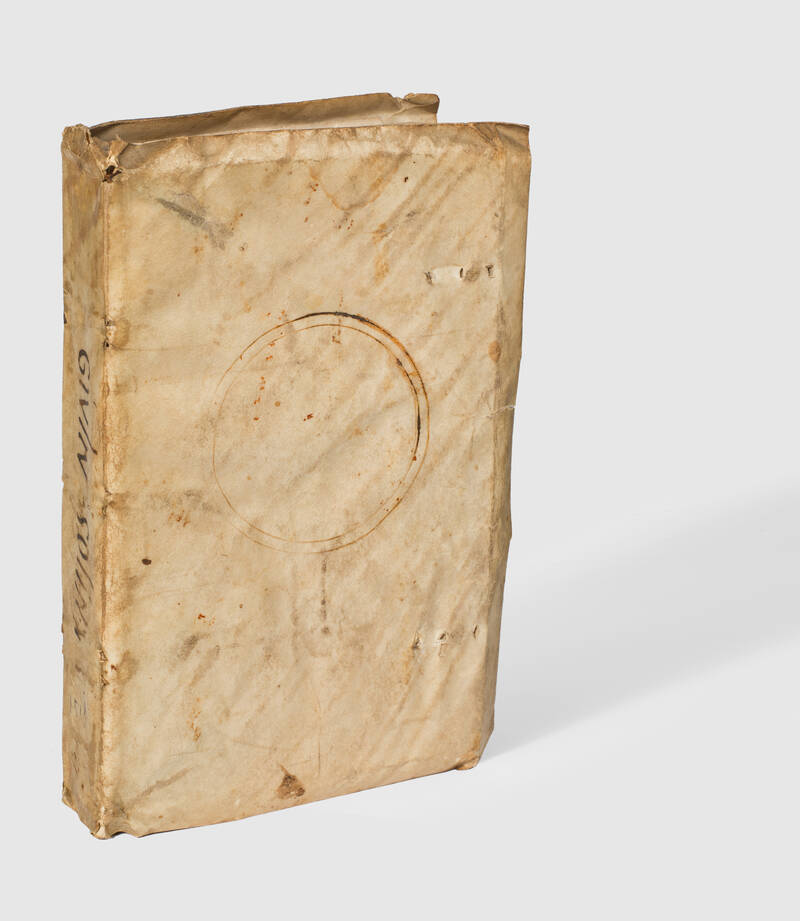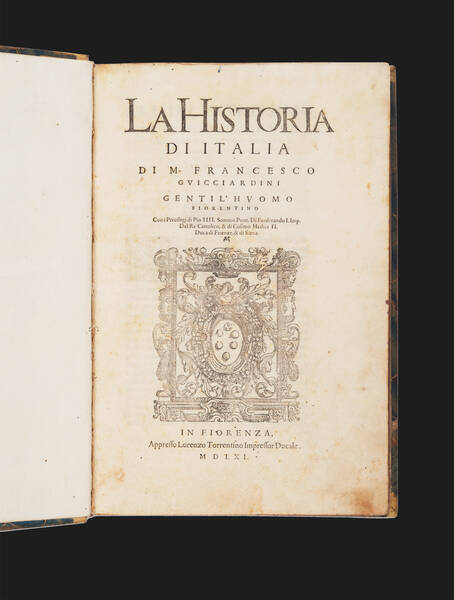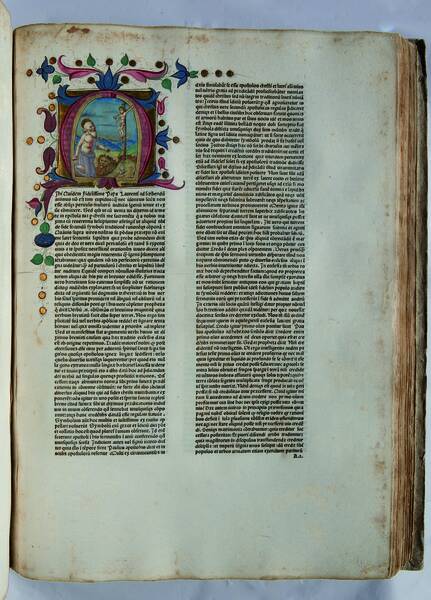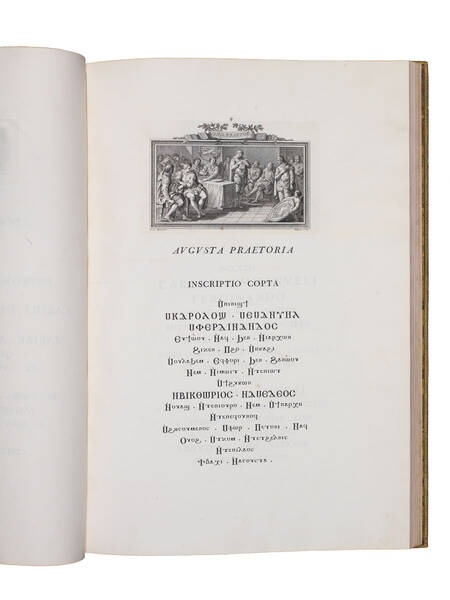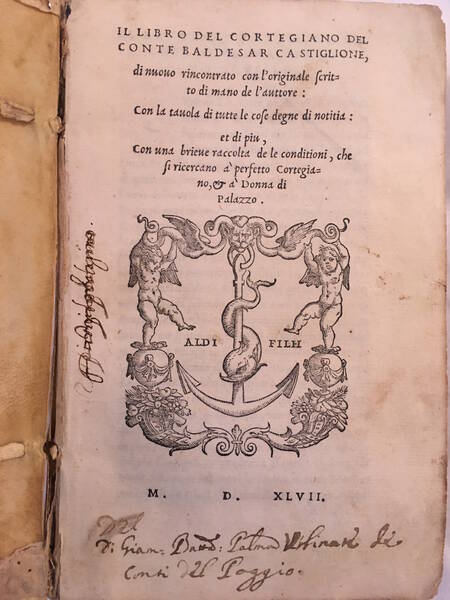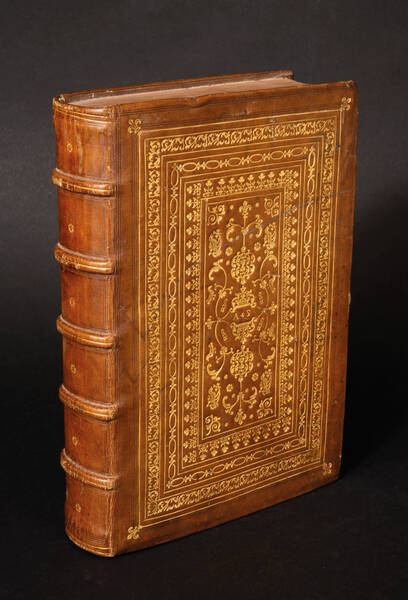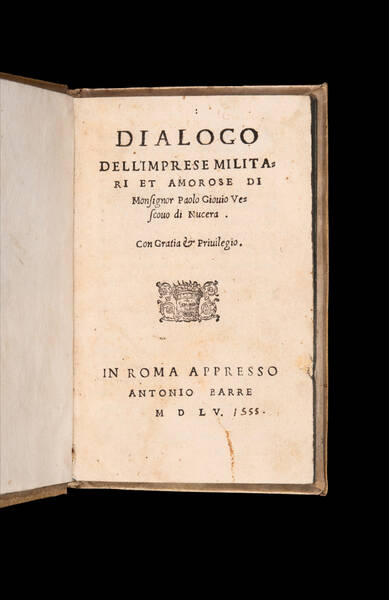POMPONIUS MELA, IULIUS SOLINUS. Itinerarium Antonini Aug. Vibius Sequester. P. Victor de regionibus urbis Romae. Dionysius Afer de Situ orbis Prisciano interprete
Venice, in aedibus Aldi et Andreae Soceri., October 1518.Octavo (162 x 98 mm.), 233, [4] leaves, woodcut printer's device on title-page and on last leaf. A very fine and genuine copy in contemporay limp vellum with manuscript title on spine.
First Aldine edition of this erudite collection of geographical works of the Classical world. The anthology is opened by Pomponius Mela's De situ orbis and Iulius Solinus' Polyhistor, but comprises also minor works such as the Itinerarium Antoninum, the description of Rome by Publius Victor, and the Latin in verse translation of Dionysius of Alexandria's Periegesis.This book reflects the humanistic interest in ancient geography and toponymy, which had been growing since Petrarch's rediscovery of Mela's and Pliny's descriptions of the world and the Latin translation of Claudius Ptolemy's Geographia, realized in Florence by Manuel Chrysoloras in the very last years of the 14th century.Pomponius Mela was a Spanish-born Roman geographer contemporary with the emperor Claudius. His Chorographia, written in ca. 40 D.E., is the earliest extant Roman geography. It consists of a summary of scientific geography, with a brief account of the earth and its three continents (Europe, Asia, and Africa), followed by detailed descriptions of the Mediterranean countries, Gaul, Germany, the Northern islands, India and the Persian Gulf, alternating purely geographical information with curious narratives on peoples, customs, legends and natural phenomena. Adhering to the Greek tradition of descriptive geography, Mela presented the geography of the world as a linear periplus along the inside and the outside coastlines (intra extraque), and thus had to divide the description of areas which have coastlines on the seas both “inside” and “outside” (Spain, Gaul) into two separate passages.We only know of the author Iulius Solinus through his work itself. Depending on whether one assumes him to be a linguistically innovative author or an unoriginal compilator, one dates the first version of his work to the late 3rd century or the 4th century A.D. Despite being a compiler and giving mostly second hand information, Solinus was to become a very popular geographer in Late Antiquity and the Middle Ages. Solinus relied principally on Pliny's geographical books, condensing their material; in so doing, he created a work which copyists, and readers, could handle more easily than the unwieldy mass of Pliny's work. His compendium achieved almost unrivalled popularity in the Middle Ages and the Early Modern period, also thanks to the fact that, unlike Mela and Pliny, Solinus enabled his readers to envisage a map, with cardinal points and relative positions of areas to each other. Solinus' description “was used by St. Augustine and by Marcianus Capella in the 5th century, by Priscianus to embellish his translation of Dionysius' Periegesis, and by St. Isidore for his encyclopaedic Etymologiae. In the 6th and 7th centuries, St. Aldhelmus and the Venerable Bede are amongst the users of Solinus' work. More than 250 codices transmit Solinus' work and are an impressive testimony to the relevance attributed to it for more than a millennium” (Brodersen, 304). “While we can only guess what kind of map Solinus or his readers may have envisaged, we have solid evidence that Solinus inspired later readers to introduce not only illustrations into the work, but also maps. It is surely no coincidence that in the 13th century Christian Mappamundi from Hereford more of the map's textual content can demonstrably be attributed to Solinus, who was almost certainly not a Christian, than to any other source (Isidore of Seville his only rival), particularly in Asia, Africa, and the Mediterranean Sea” (Brodersen, 309-310).
References: Renouard, 83; S. Gentile, Umanesimo e scienza antica: la riscoperta di Tolomeo geografo, in Il contributo italiano alla storia del pensiero, 2013; K. Brodersen, The Geographies of Pliny and his ‘Ape' Solinus, in Brill's Companion to Classical Geography, 2015, 298-310.
Other Books
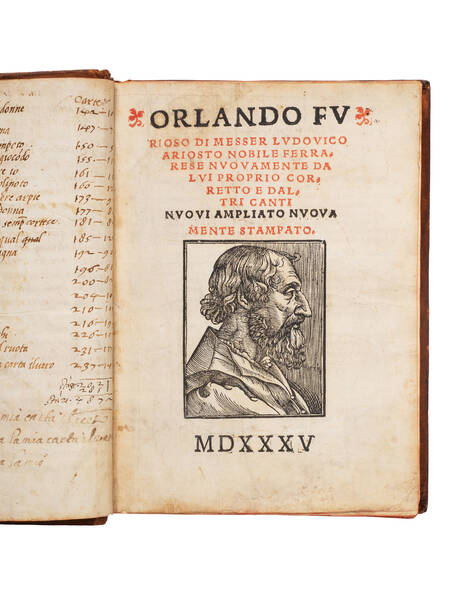
ARIOSTO, Lodovico
Orlando furioso di messer Ludovico Ariosto nobile ferrarese nuovamente da lui proprio corretto e daltri canti nuovi ampliato, nuovamente stampato.
SOLD OUT![[De Architectura libri decem], M. Vitruuius per Iocundum solito castigatior factus cum figuris et tabula vt iam legi et intelligi possit. [De Architectura libri decem], M. Vitruuius per Iocundum solito castigatior factus cum figuris et tabula vt iam legi et intelligi possit.](https://www.medariquier.com/typo3temp/pics/b57e48f107.jpg)
VITRUVIUS POLLIO, Marcus
[De Architectura libri decem], M. Vitruuius per Iocundum solito castigatior factus cum figuris et tabula vt iam legi et intelligi possit.
SOLD OUT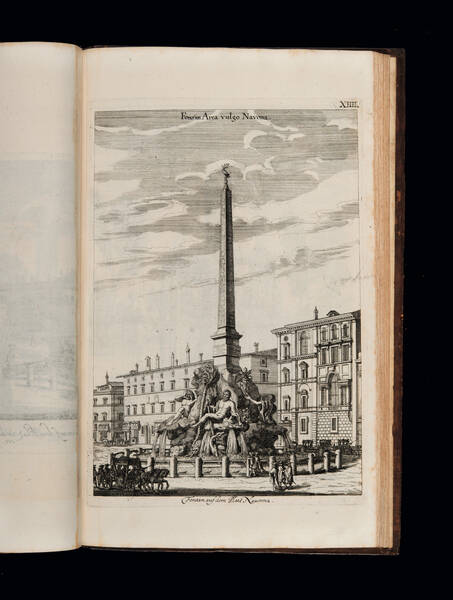
FALDA, Giovanni Battista
Romanorum fontinalia, sive nitidissimorum perenniumque, intra et extra, Urbem Romam, fontium vera, varia, et accurata delineatio.
SOLD OUT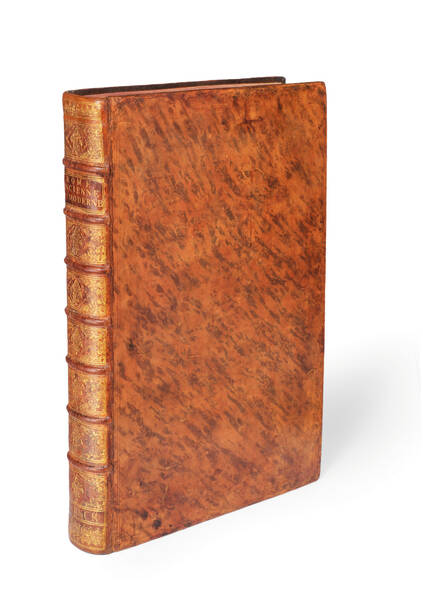
BARBAULT, Jean
Les plus beaux monuments de Rome ancienne.– Les plus beaux edifices de Rome moderne.
SOLD OUT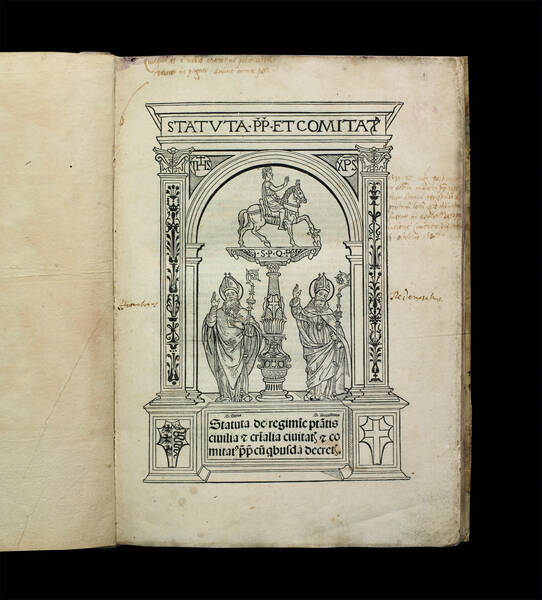
[PAVIA, Statuti]
Statuta Papiae et comitatus. Statuta de regimine potestatis ciuilia & criminalia ciuitatis & comitatus Papiae cum quibusdam decretis.
SOLD OUT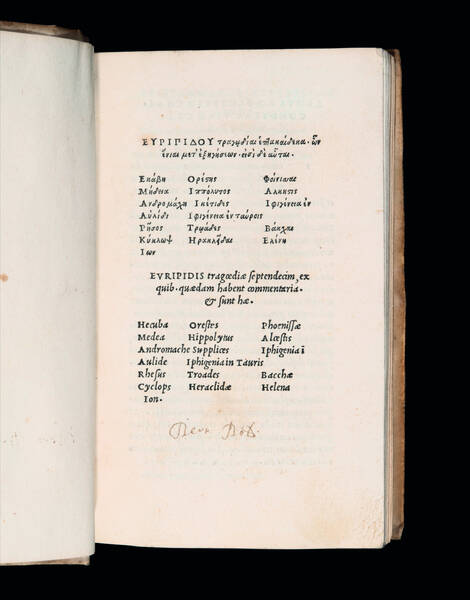
EURIPIDES
Tragoediae septendecim ex quib.quaedam habent commentaria,et sunt hae. Hecuba Orestes Phoenissae Medea Hippolytys Alcestis Andromache Supplices...
€ 29.000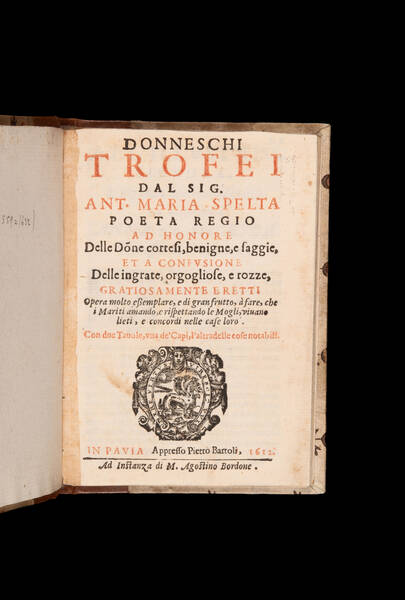
SPELTA, Antonio Maria
Donneschi trofei … ad honore delle donne cortesi, benigne, e saggie, et a confusione delle ingrate, orgogliose, e rozze, gratiosamente eretti. Opera...
€ 3.000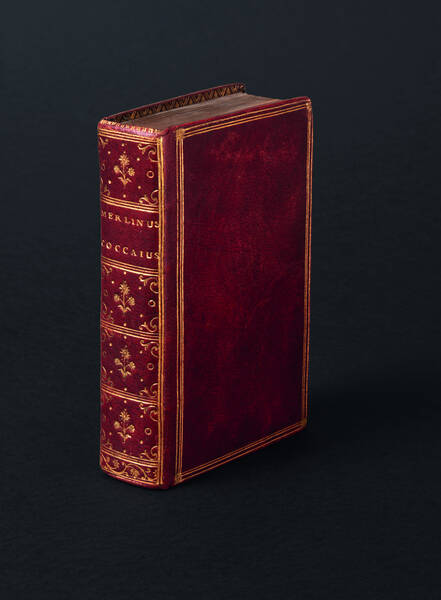
FOLENGO, Teofilo
Opus Merlini Cocaii poetae Mantuani Macaronicorum, totum in pristinam formam per me magistrum Acquarium Lodolam optime redactum in his infra notatis...
€ 11.000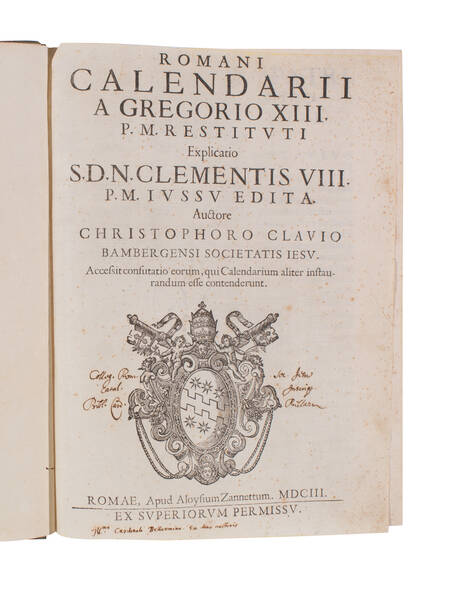
CLAVIUS, Christoph
Romani calendarii a Gregorio XIII. P.M. restituti Explicatio S.D.N. Clementis VIII. P.M. iussu edita.
SOLD OUT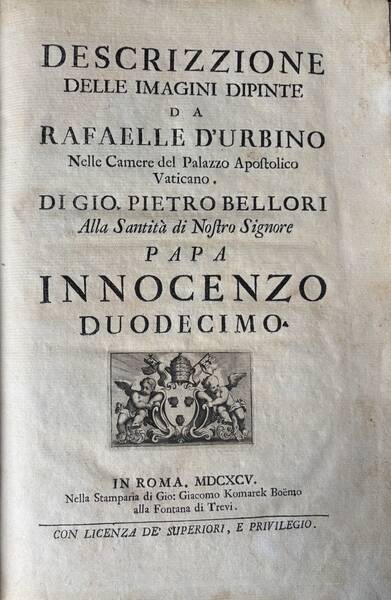
BELLORI, Giovanni Pietro
Descrizzione delle immagini dipinte da Rafaelle d'Urbino nelle camere del palazzo Apostolico Vaticano.
€ 2.500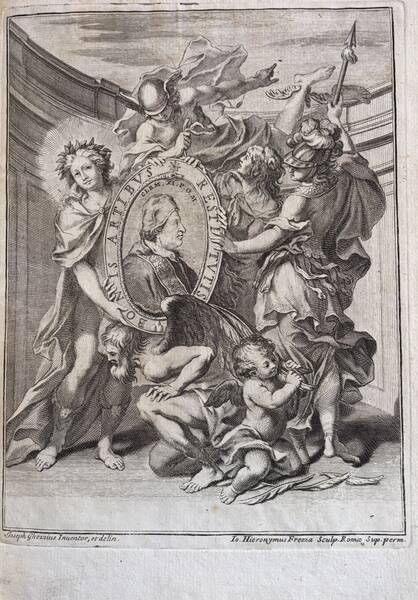
GHEZZI, Giuseppe
Roma tutrice delle belle arti, pittura, scultura, e architettura – mostrata nel Campidoglio dall'Accademia del disegno il dí 2. Ottobre 1710. Essendo...
€ 700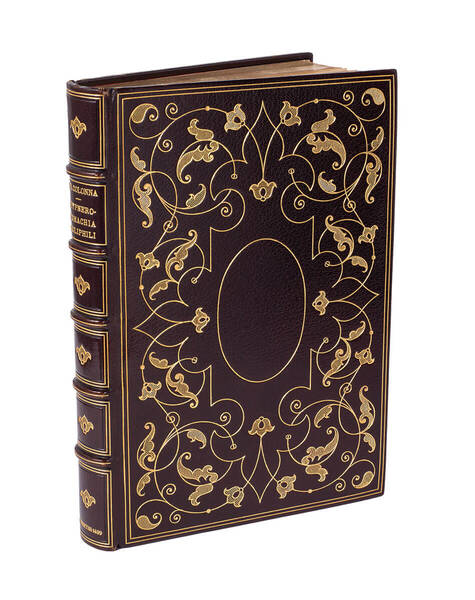
COLONNA, Francesco
Hypnerotomachia Poliphili, ubi humana omnia non nisi somnium esse docet atque obiter plurima scitu sanequam digna commemorat.
SOLD OUTMEDA RIQUIER rare books ltd.
4 Bury Street St James's
SW1Y 6AB London
Phone +44 (0) 7770457377
info@medariquier.com
